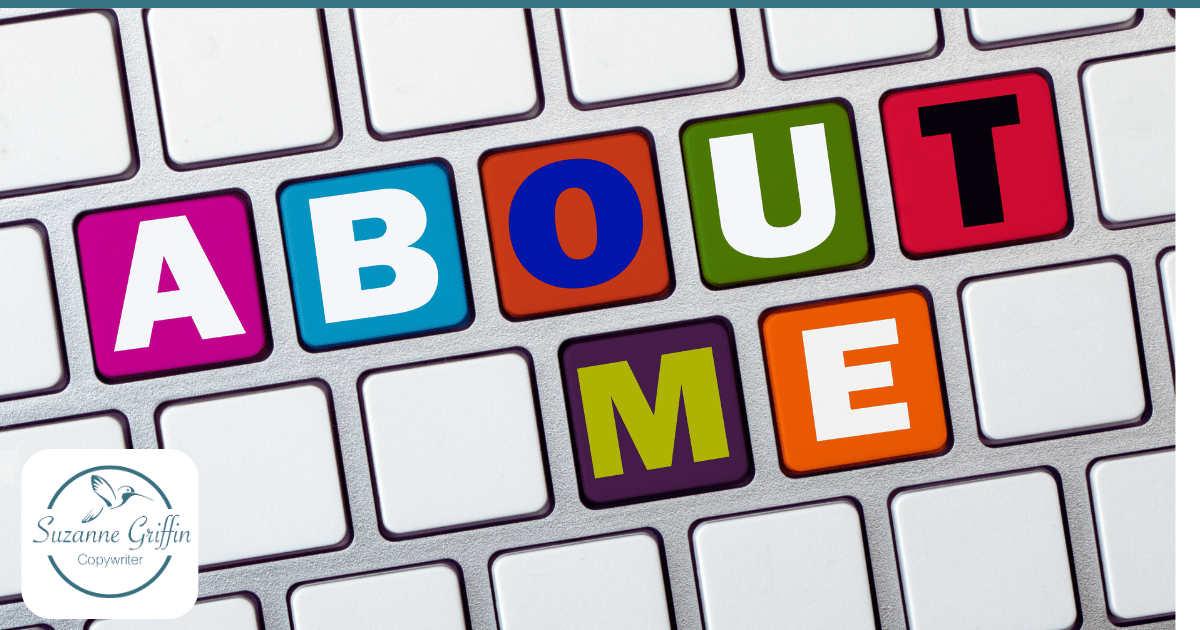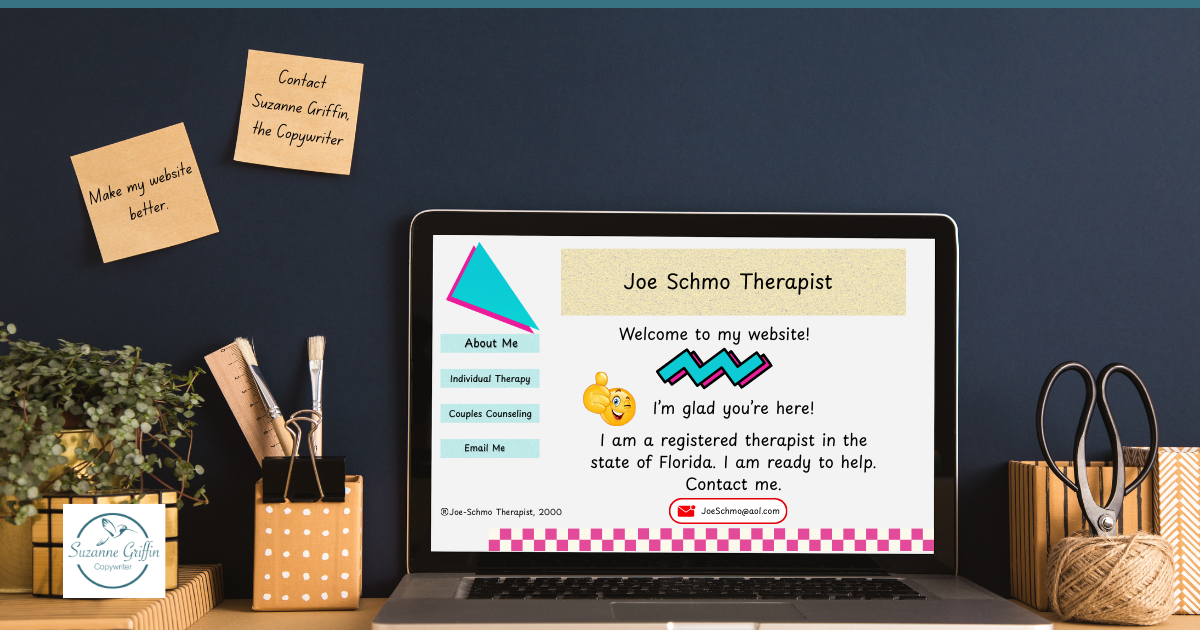Welcome to My Mental Health Copywriting Blog
Insights, Tips & Inspiration from Suzanne Griffin, Copywriter
Hey there, and thanks for stopping by! I’m Suzanne Griffin, a copywriter who specializes in helping therapists, mental health professionals, and wellness providers find the right words to connect, inspire, and grow. This blog is where I share all the good stuff, including insights from the world of copywriting, real talk about building a meaningful business, and practical strategies you can use to communicate with heart and clarity.
Whether you're a solo practitioner trying to fill your caseload, a group practice looking to build authority, or a wellness entrepreneur navigating the wild world of online marketing, you’re in the right place. I created this blog to be a helpful, encouraging space where you can learn more about how copywriting works, why words matter, and how to use them to reach your ideal clients.
My goal is to give you tools, confidence, and a deeper understanding of how great copy can support your mission. I want you to walk away from every post feeling just a little more empowered.
Thanks for being here. Feel free to browse, read, comment, and reach out if something resonates.
Your voice deserves to be heard, and I’m so glad I get to help you share it.
With Gratitude,
Suzanne

Do I Need Separate Service Pages for My Therapy Practice?
Wondering if your therapy website really needs separate service pages? This guide breaks down why dedicated pages improve client clarity, strengthen therapist SEO, and make your site more calming and effective. Learn how simple structure changes can help the right clients find you.

From Comfortably Vague to Completely You: Making Your Therapy Website Stand Out
Most therapy websites sound polished but forgettable. Here’s how to make your therapist website copy sound human, specific, and unmistakably you.

AI Snippets 101: How Therapists Can Earn a Spot in Google’s “AI Overview”
As a mental health copywriter for therapists, I’ve seen how structured data and smart SEO can help you earn a spot in Google’s new AI Overview. Here’s how to do it.

“Why Isn’t My Therapy Website Showing Up on Google?”
Ever wonder why your therapy website isn’t showing up on Google? You’re not alone. Between constant algorithm updates and new AI search tools, visibility can feel like a moving target. Here’s how to help more clients find you…without turning into a tech expert.

How to Write a Therapy About Page That Feels Human (Not Like a Résumé)
Ask most therapists which page feels hardest to write, and they’ll say the About page. It’s where you try to sound professional and human, without oversharing or slipping into résumé mode. This blog walks you through how to strike that balance, so your About page feels like a genuine introduction: warm, grounded, and unmistakably you.

How to Write a Therapy Website Homepage That Feels Like a Welcome Mat
Think of your homepage as your welcome mat, not a lecture hall. Here’s how to make your therapy website warm, clear, and Google-approved — without the cringe.

Why Every Therapy Blog Needs an Author Bio (and How to Write One)
Most therapy websites skip one small but powerful detail: the blog author bio. Adding just a few lines about who you are builds trust, strengthens SEO, and shows Google you meet E-E-A-T standards. Here’s why it matters—and how to write a bio that helps your blog truly connect.

Psychology Today Profiles: How to Make Yours Stand Out (Without Sounding Like Everyone Else)
Most Psychology Today profiles sound the same, and that makes it harder for clients to choose you. In this post, you’ll learn how to write a bio that feels warm, client-friendly, and unique. Plus, there’s a free printable checklist inside to make the process even easier.

Is Your Therapy Website Pushing Clients Away? 5 Common Mistakes to Fix
Your therapy website is often the first impression clients have of you. But if it’s outdated, jargon-heavy, or missing a clear next step, you could be pushing them away. Here are 5 common therapy website mistakes, and simple fixes, to help your site feel warm, welcoming, and client-friendly from the very first click.

Google’s E-E-A-T, Entities, and AI SEO: What Every Therapist Needs to Know
Google takes mental health content seriously, which is why E-E-A-T: experience, expertise, authoritativeness, and trustworthiness, matters so much for therapists. Your training and lived experience already make you credible, but your website has to show it. In this blog, I break down what E-E-A-T means, common mistakes therapists make online, and how working with a mental health copywriter can help you build trust with both clients and Google

Why I Write About Mental Health
I don’t write about mental health because it’s trendy. I write about it because it’s personal. I’ve lived with anxiety and depression. I’ve lost people I love to suicide. And I believe that words can be a powerful part of healing. As a mental health copywriter, I use my skills to help therapists connect with the people who need them most. This is the story behind why I do what I do and why it matters so deeply to me.

Therapist Marketing: Because Your Dream Clients Can’t Read Minds
Therapist marketing gets a bad rap, but it’s not about “selling” therapy. It’s about making sure the people who need your help can actually find you. In this post, I explore the biggest challenges therapists face when trying to attract ideal clients, how to stay relevant online without selling your soul, and why good marketing is really just good therapy with a keyboard.
